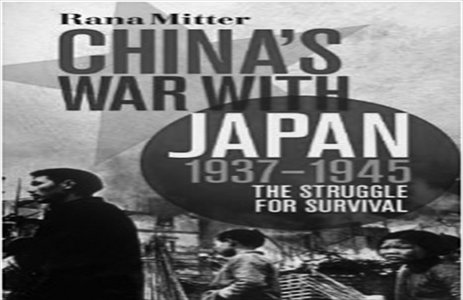Painful history of China’s struggle against Japanese refuses to take easy options

For a struggle that occupied over 1 million Japanese troops, killed about 16 million civilians, and raged for two years before the rest of the war even began, China's battle in World War II has always been strangely neglected in Western historiography. Major histories of the conflict devote only a few pages to it, and even books on the Pacific War prefer the naval clashes and island battles of the US against Japan to the long war in China.
There have been some good reasons for this. Language, travel, and political barriers made access to reliable sources difficult. But it's also because China's struggle was messy, complicated, and confused. As a result, the individual stories of Chinese have often been lost in the fog of war.
Rana Mitter's new book, China's War With Japan, 1937-1945: The Struggle for Survival, does much to allay this. Mitter, a professor of history and politics of modern China at the University of Oxford, provides a clear and balanced picture of the course of the war, with all its strange alliances, reversals of fortune, and unclear lines, while never neglecting the fates of ordinary people.
Mitter is good on the complicated diplomacy on the anti-Japanese side, and the motivations and problems facing figures like Mao Zedong, Chiang Kai-shek and even the now-despised "traitor to the Chinese people" Wang Ching-wei.
He also gives full scope to the uneasy relationship with other allies, both Western and Soviet, and the sudden vacuum caused by the US-led victory against Japan and the Soviet blitz into Manchuria.
The one thing sometimes missing from the book is a sense of the fighting itself. That's something that can be found elsewhere, but for Chinese readers used to heroic tales of resistance, it may be disconcerting not to read of soldiers sacrificing themselves to block bridges, but instead frenetic exchanges of telegrams between leaders.
Any history of the war has to deal with the issue of atrocities. Mitter, who uses sources from all sides of the conflict, is unsparing on Japanese brutality. But he also outlines the process that brutalized the Japanese, rather than treating them as unthinking monsters.
He highlights the "crippling division" between Japanese civilians and the military, the unpreparedness of Japan for total war, and the ideas of "banditry," as opposed to legitimate soldiering, that led to the mass murder of prisoners.
Ordinary Chinese didn't just suffer from the "enemy." Chapters highlight the death of half a million people after Nationalist forces broke the dykes on the Yellow River to slow the Japanese, of the deadly starvation in Henan Province, and the political repression by all sides.
Mitter is interested in ordinary Chinese life, not just the war; in small stalls, traveling widows and countryside plays, not just armies. The sense of loss conveyed by this excellent and fair-minded book is all the more powerful for it.